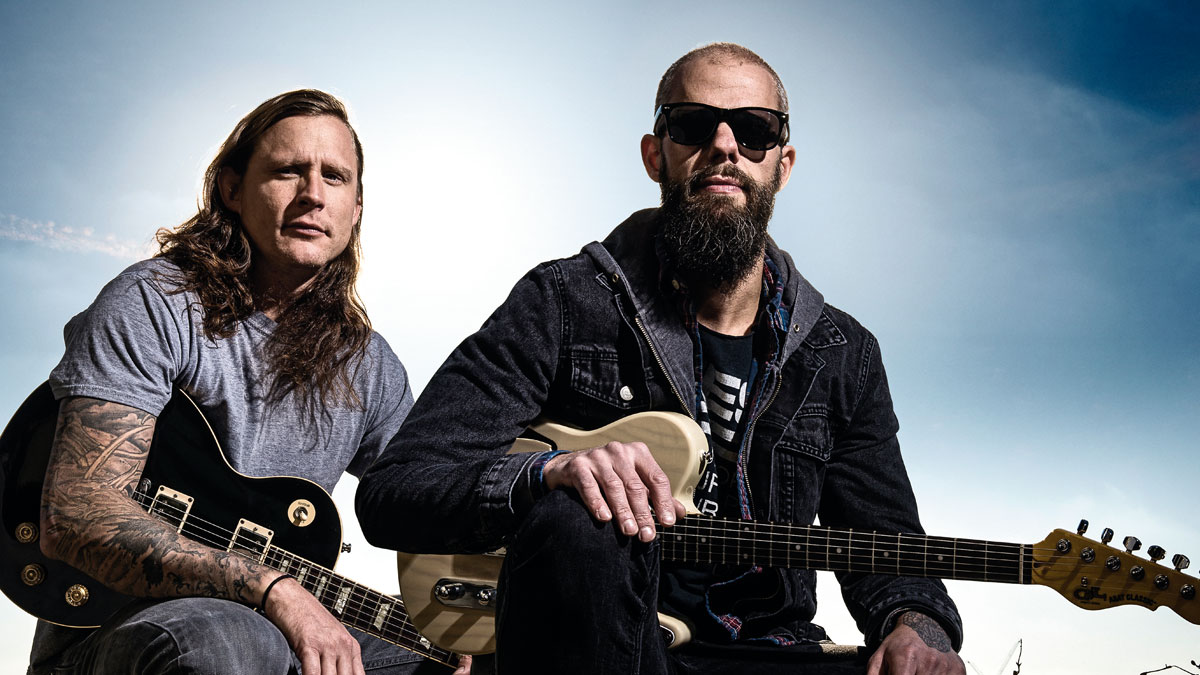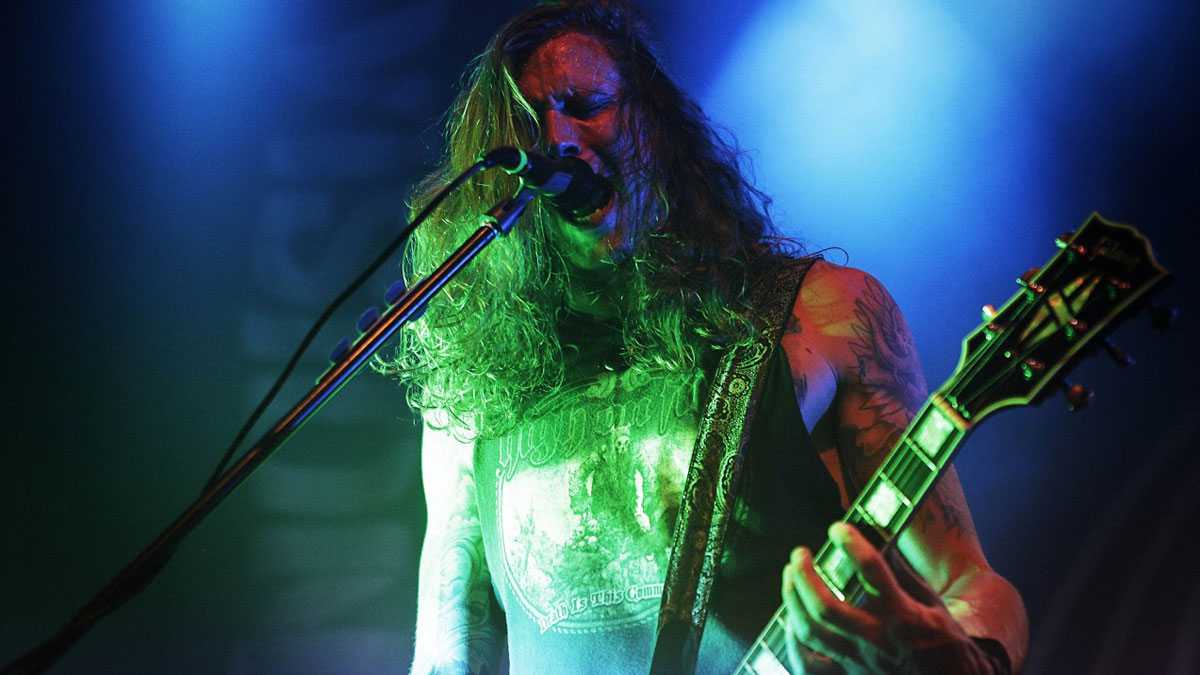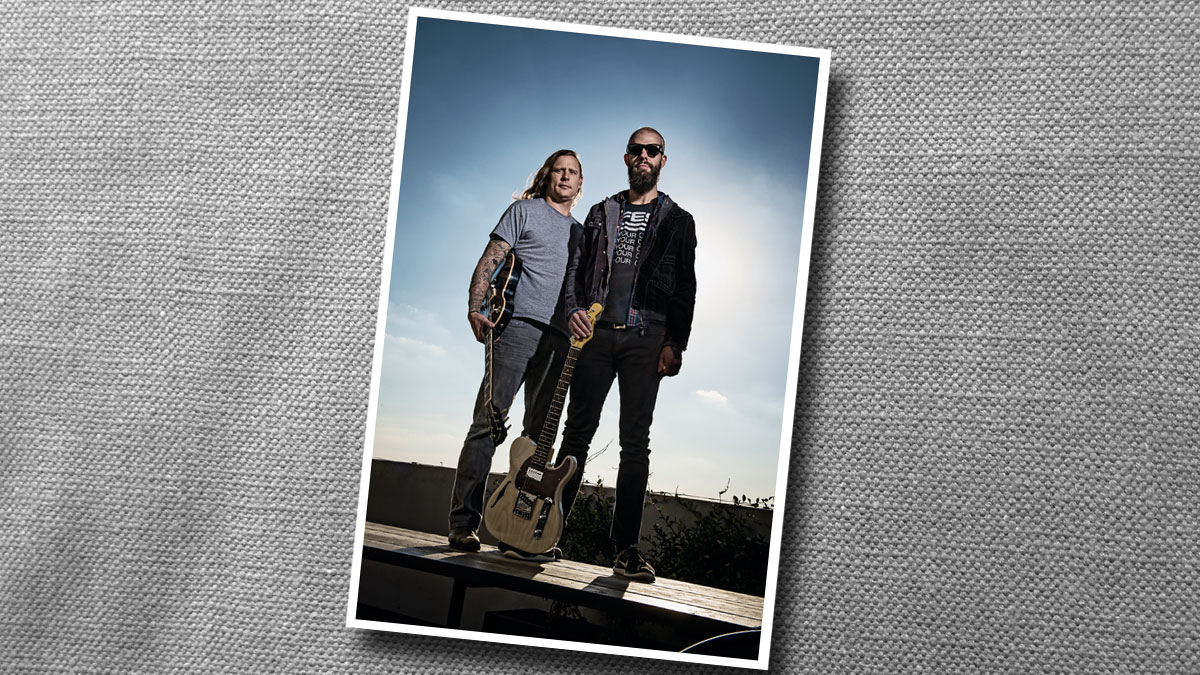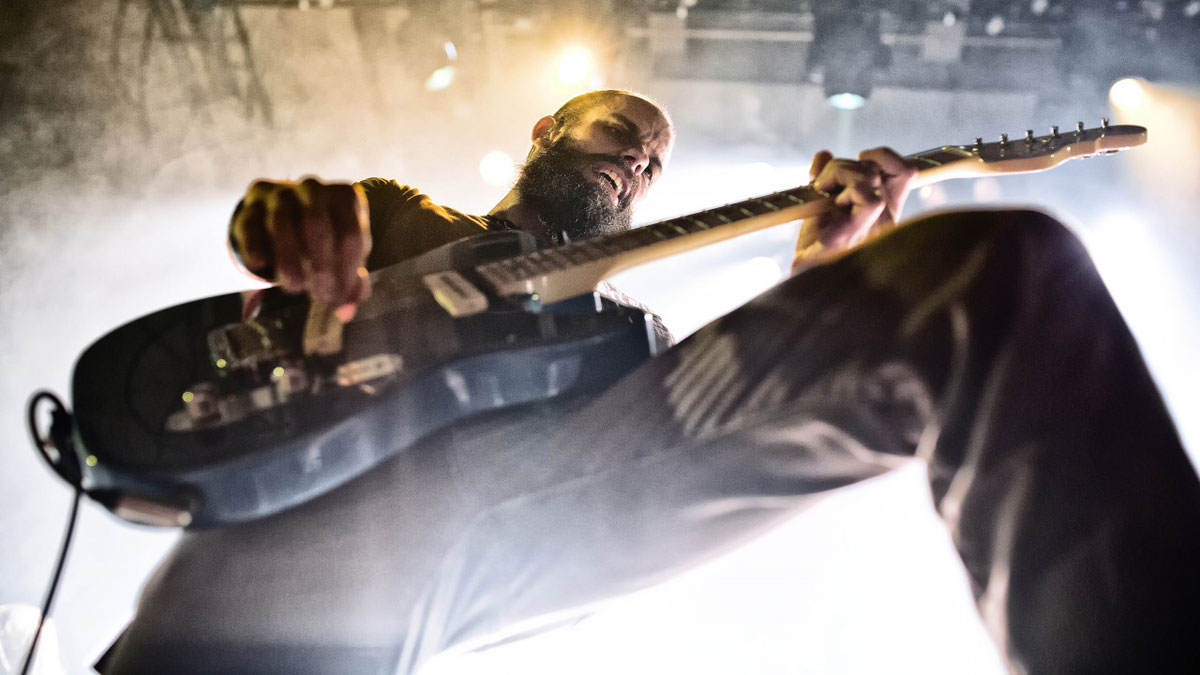Baroness on that bus crash and the road to latest album Purple
Out of chaos comes musical life

Introduction
It’s been three years since the Baroness bus crash made national news. Guitarists John Baizley and Peter Adams reflect on the nightmare they’re lucky to have survived, their road to recovery and a triumphant new album.
For Baroness singer/guitarist John Baizley and fellow axeman Peter Adams, 15 August 2012 is a date that will be forever etched into their psyche. The Georgian sludge metallers were back in the UK for a short tour to support their lauded third full-length Yellow & Green.
It was a long tour with no real days off, nine bodies on a seriously primitive bus
After seemingly endless days of building tensions on a cramped vintage tour bus, the band and crew were in good spirits from playing a blinder at The Fleece in Bristol the previous night. As usual, founding member Baizley started the day by logging a diary on his laptop, while the bus continued on towards Southampton. The tour was almost over. This was the home stretch.
“We were at the tail-end of a seven week run,” remembers Baizley, on a cool Autumn afternoon in central London.
“It was a long tour with no real days off, nine bodies on a seriously primitive bus - especially in terms of touring on the road today. 20 years ago it would have been just about fine! There were only a couple of shows left. It was a bit like when you quit your job and you’ve got your last two weeks to go. You’ve already kinda checked out.”

Horror ride
Sadly, there would be no checking out for the band. At least not for a while. Around 10.45am, the bus plunged 30 feet off a viaduct near Bath, sending its occupants hurtling into the unknown, almost claiming their lives. Sat by his bandmate, Peter Adams recalls the horror...
“It was one of those days where it was just pouring down with rain,” says the guitarist, who joined the band in 2008 and has become the longest-serving member after Baizley.
We went over the tops of some trees, four wheels in the air, watching the trees whipping the windshield
“The bus was going really slow because, you know, English roads are small. The driver was just creeping, doing his daily drive, as I was laying in my bunk awake. Those roads weren’t accommodating for the bus… we shouldn’t have been on them. This thing had been on tour since the Berlin Wall came down, it was the clownshoe express.”
John shakes his head in disbelief and picks up the story. “The sat nav took our driver Norman somewhere he shouldn’t have been. We swung this left onto Brassknocker Hill [in Monkton Combe] and I saw a sign that said ‘Next two miles 12 per cent downgrade’ and I’m thinking, ‘That’s pretty steep, this is getting weird!’ Then the pneumatic ‘psssshhh’ went off and I looked at Norman who was terrified from moment one.
“For two miles we were listening to every kind of brake as he stomped them. The emergency ones went, plus all the main ones, while we had a steep bank on one side and a stone wall on the other. There was nowhere to go.
“We were picking up speed and my thoughts went from a 99 per cent chance of being okay and plummeted down from there… until we were moving really fast, totally out of control off the bottom of a hill, straight through the barricade like it was warm butter. We went over the tops of some trees, four wheels in the air, watching the trees whipping the windshield. We all thought, ‘Alright. That was that. Let’s get it over with.’”

The aftermath
The trees absorbed much of the shock at the back, but the front of the bus was crushed on impact like an old rusty tin can. While Peter lay in his bunk bracing for dear life, John - stood right in the middle of it all - was hurled into the windshield, which popped out in one piece.
By the time the vehicle grounded to a halt, he was back in the bus trying to make sense of the alien vortex around him. Twisted metal, broken glass, blood and mayonnaise everywhere.
At first the doctors prepped me for amputation. It was severe enough for that to be an option
The singer/ guitarist looked at his arm to discover it was shattered into pieces. Seven, to be precise. The rest of his body was just as bad, one leg had been turned 15 degrees, while above it dangled a hand some three inches lower than it did seconds before. As fate would have it, help was close by.
The accident took place near a construction site where workers were near enough to come to the rescue with extension ladders. All on board were rushed to Bath’s Royal United Hospital for emergency care as reports spread from the music press to national news.
“At first the doctors prepped me for amputation,” continues Baizley, looking as grim as any guitarist would uttering such words. “It was severe enough for that to be an option. I was put in this weird half-cast and for the next three days, I was looking at an arm that was shaped like a W and couldn’t do anything. I told the doctors that I was a guitar player and begged them to do whatever they could.
“After the surgery, there was 57 staples and a 17-inch scar. And sure, I got scared I couldn’t do it. I stopped cleaning my hands because I wanted to keep my guitar callouses. They started to crack and everyone called me corpse arm! But slowly, it all came back.
“I started with a G chord, then a C chord. I got the motion, but my arm will always be fucked. Luckily the things I can’t do are not guitar related. For example, I can’t push things away, but I don’t need that to play guitar. I have full dexterity in my fingers. It’s a fuckin’ miracle.”

New horizons
Three years on from that life-changing moment and Baroness are enjoying a new lease of life. Sadly though, the fractured vertebrae injuries and sheer trauma of it all left drummer Allen Blickle and bassist Matt Maggioni unable to continue, so Sebastian Thomson and Nick Jost have filled their shoes.
We wrote a record to prove that recovery is possible and you can even make yourself better in the process
Fourth album, Purple, is an incredibly human summary of their recovery process and one that - like its predecessor - amalgamates elements of indie and progressive rock into their molten metal. It is also the first to come out via their own label, Abraxan Hymns. Wounds have been licked, scars have healed… it’s time for Baroness to become a band again.
“We’ve got two new guys in the band,” says Adams. “And though we’d played together live, when it came to recording, they didn’t want to fuck with our sound. They wanted to fit within it. We wrote a record to prove that recovery is possible and you can even make yourself better in the process. If you push and drive, you can be creative and improve. I mean, the momentum of the band stopped, we had a lot of shit to work through first. It took three years to rebuild our skill, technique, songcraft to a better place.”

From the soul
Whatever it is, it’s evidently been working for some time. Jimmy Page was among those that attended their last London show, watching in awe from the balcony.
Like fellow Georgians Mastodon, Baroness often lace their crackling cauldron of fuzz with dizzying atmospheres and psychedelia - heavy enough for extreme music fans yet also experimental enough for more mainstream tastes. It’s a rare talent, which makes more sense as their founder explains his roots...
I want to be an informed musician. Why do certain songs feel good to me when others feel like horseshit?
“My three go-to bands are Radiohead, Pink Floyd and Neurosis,” grins Baizley. “None of them sound like us... but I don’t want to listen to bands like that sound like us, I actually want to learn something! Half the records I hear, I don’t like. If I want to avoid something musically, I want to know why. I’m always looking for something new and exciting.
“I want to be an informed musician. Why do certain songs feel good to me when others feel like horseshit? What is the X factor that makes one band great and others total lunacy? When it comes to art, all your experiences and ideas go into a blender, and whatever comes out will be your signature. This record came from the soul. So we don’t think about influences, we just try to do what suits the song. And metal isn’t the only thing we listen to.”
“Most metal bands don’t even listen to metal,” laughs Adams. “Do we play strictly metal? No way. But I love Enslaved, they’re one of my favourite bands. There are things in what they do that have influenced me. I love the way they’ve evolved. And if you ask me who my favourite guitarist is, I’ll say Brian Setzer!
“I also think John Frusciante is a great player. Hendrix, too, I know everyone says that, but he was just total magic. We cover it all between us and naturally there are certain things each of us like that the others don’t. We all listen to so much music, man.”
And from the mesmerisingly eclectic sounds heard on Purple, we wouldn’t doubt it for a second. Against all odds, Baroness are back and quite simply, unstoppable.
Baroness’ new album, Purple, is out now on Abraxan Hymns.
Amit has been writing for titles like Total Guitar, MusicRadar and Guitar World for over a decade and counts Richie Kotzen, Guthrie Govan and Jeff Beck among his primary influences. He's interviewed everyone from Ozzy Osbourne and Lemmy to Slash and Jimmy Page, and once even traded solos with a member of Slayer on a track released internationally. As a session guitarist, he's played alongside members of Judas Priest and Uriah Heep in London ensemble Metalworks, as well as handling lead guitars for legends like Glen Matlock (Sex Pistols, The Faces) and Stu Hamm (Steve Vai, Joe Satriani, G3).


